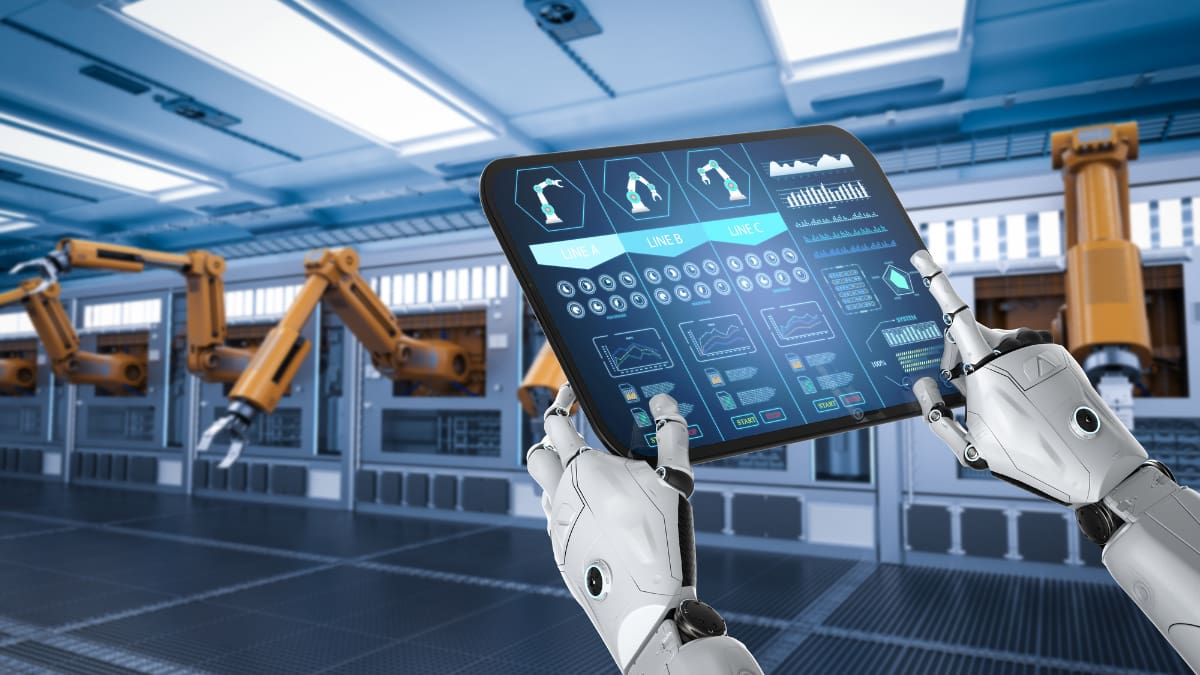Automation in manufacturing is growing at a considerable pace. However, bespoke automation, i.e., designing and building a machine that is yet to exist, is an area less known to manufacturers, yet an area that can yield incredible results.
And this is where GB Innomech comes in.
We understand designing and building a machine comes with considerable risk as well as considerable rewards, and we know from integrating automation into new processes or modifying existing ones to increasing the reliability of current machines or improving product quality, the need for clear specifications and the management of areas of uncertainty is vital.
That’s why our team works with UK manufacturers to identify what they want to achieve, finding cost-effective, scalable bespoke solutions by taking a pre-determined, risk-based approach to designing and building bespoke equipment that meets requirements now and in the future.
But what is bespoke automation, and how will it benefit you?
In its simplest form, bespoke automation means designing and building a machine or system that hasn’t already been built; it’s the new.
For example, we are not building another toaster or washing machine, nor is bespoke automation a system-built hundreds of times before with all issues ironed out after thousands of hours in operation.
Instead, the stages of bespoke automation cover:
- Innovation and prototyping
- Bespoke design and simulation
- First stage build
- Machine integration
- Testing
- Validating
- Ongoing onsite support.
Considerations of bespoke automation
As well as your own research and knowledge on automation and the benefits such an area brings, you must also consider:
Customer Expectations
Managing the diversity of customers and their expectations can be challenging, and like many of us, we only know what we want when we see the physical entity. How can you manage this internally? What protocols/processes do you have in place to manage customer expectations? How will automation support the customer experience?
Stakeholder Opinion
Other stakeholders in the business, such as the Managing Director, the Quality Assurance team, external shareholders, etc., will all have their own thoughts and opinions on what is needed, what the system will do for them, and the impact of this on the business and day-day operations, and these must or at least should be considered, and built into processes and conversations.
Experience of Automation
A manufacturer’s experience of automation may vary based on past experiences and the experience of current staff.
For example, some manufacturers will have a very clear process for defining their automation requirements; they know areas where improvements can be made, and staff have prior knowledge and are trained in certain areas of automation.
Alternatively, some manufacturers may have no automation integration currently implemented, with engineering staff having little to no knowledge of automation at all.
Is bespoke automation for you?
Automation is a significant investment.
An investment of time, money, and resources. So, you need to be confident of the reasons why you need automation.
Think about:
Your reason why – what are your reasons for a machine in terms of business benefits and ROI, and what does automation mean to your customer? Think about, what the system will do, how it will work, how users interact with it, what maintenance will be required, how will the system be supported once it is up and running, and the biggest question…will it be sustainable for the future?
Product variations – what is the range of products in your business? What do these look like, and how automation-friendly could these be? In these instances, we would advise using the 80:20 rule to ensure automation covers the full critical range of products – this can be especially important when budgets are tight.
Price – automation is an investment, and to understand and lower costs, consider the scope of automation, e.g., do I need automated infeed/outfeed? What speed does the machine need to achieve? Which products must be made via automation? What are the critical quality aspects required? Do I need parts traceability?
Timelines – it’s important to have a timeline in place; however, these must also be realistic. Project delays can often be inevitable; changes to scope, suppliers, technical modifications, etc., all play a big part in timeline expectations. Typically you can expect anywhere between 4-12 months for a bespoke system, from design to installation.
Benefits of bespoke automation
- Built to meet specific needs
- Increase productivity (bringing a new product to market or diversifying product lines)
- Improve quality
- You can gain efficiencies
- Achieve competitive advantage
- Optimise production line layouts
- Overcome hurdles in assembly, packaging, fitting, and more.
Working with a professional automation partner such as GBI can provide cost-effective, safe, flexible, and agile solutions.
Our bespoke automation processes
Our process involves outlining specific steps required for designing a bespoke specialist machine. Providing 3D images of the system using CAD software, we include all calculations, stress/strain, and location of various parts and fixtures to enable the system to be assembled in the real world.
Through our specialist simulation software, we can create prototypes that offer the most optimal solution for you. This will allow you to review, alter, and add at the initial stages in a real environment.
We also look to include other stakeholders at an early stage to avoid any late-stage changes and modifications that can prove costly and time-consuming. For example, health and safety consultants, quality assurance managers, machine operators, etc.
Understanding your process requirements and process window (high – low) ultimately enables effective design. It ensures the machine is fit for purpose and is capable of delivering product quality at the desired production rate.
At GB Innomech, we’re experts in the field of bespoke automation. Specialising in the design and development of innovative purpose-built machinery and equipment.
To improve efficiencies and safeguard your business now and in the future, speak to us today.




